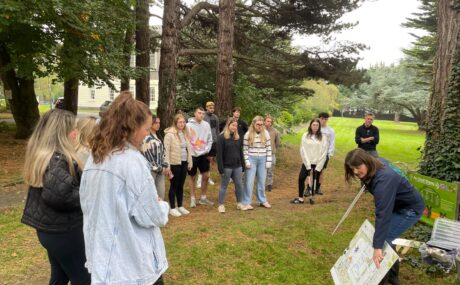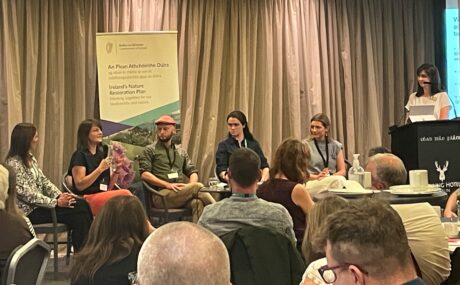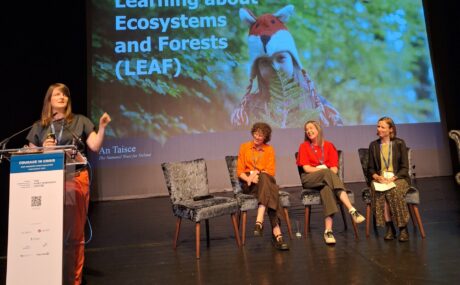Forests have always been of great importance to people and their communities. Our ancestors got their food by hunting and gathering plants from the forests. Before people began to clear forests for farming and for land to build on, forests covered about 60% of the Earth’s surface area. Today, forests only cover about 30%.
Despite the developments of civilisation, people still depend on forests for their survival. Forests are of huge importance economically and environmentally. Forests provide a wide range of products not only timber and firewood but also food, medicine and fibre. Communities around the world are linked to forests through products and associated livelihoods; we encourage schools to explore these links. We also encourage participants to examine the communities at risk of losing their homes due to illegal logging and agriculture. Investigate ways of alleviating poverty through sustainable forestry, while improving livelihoods and creating green jobs. Where possible explore indigenous communities/engage with local communities and share their knowledge and expertise. Finally, remember that the natural beauty of the forest offers a special source of enjoyment to all communities.
Case studies
Children’s attention was drawn to the importance of trees in the environment in a very positive way
It was a joy to work on the programme with the children, we all found it so interesting
The programme is incredibly enjoyable and very beneficial to all pupils
Related News
Videos
Learning about Forests celebrated 15 years of success in 2015! LEAF is a programme of the Foundation for Environmental Education (FEE). The LEAF programme was initiated in 1999 by the Forest in Schools programmes in Norway, Sweden and Finland, in cooperation with FEE, and was rolled out in the spring of 2000. The LEAF programme was successfully transferred to the FEE Head Office, Copenhagen, in 2014 and is now coordinated by FEE at an international level. Globally, there are twenty-three countries participating in the LEAF programme. The LEAF programme aligns itself with Education for Sustainable Development (ESD) and the Global Action Programme (GAP).








